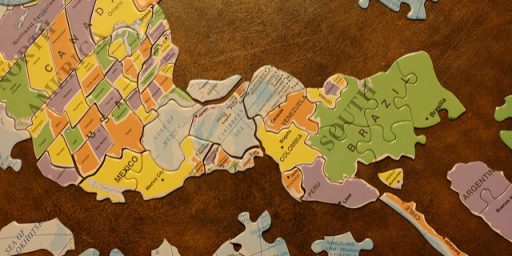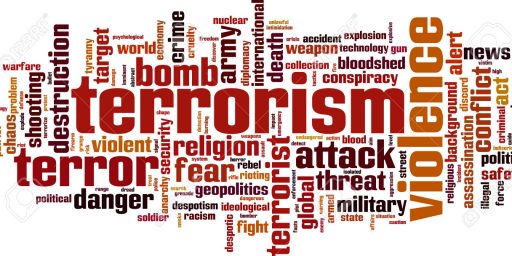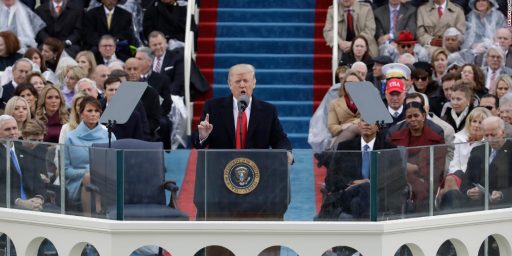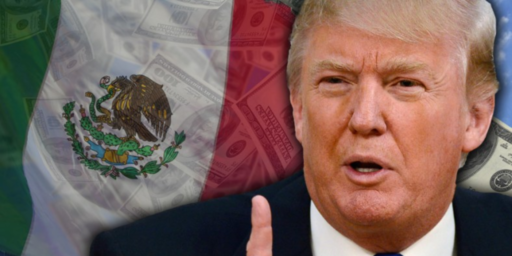Trump’s (Lack of) Popularity in Latin America
Via Gallup: Outlook Grim in Latin America for Relations Under Trump.
The image of U.S. leadership took a hit worldwide during Donald Trump’s first year in office, but nowhere more so than in Latin America, where the median approval rating dropped from 49% in 2016 to 24% in 2017. As low as the approval rating was for the U.S. leadership in general, fewer in the region, 16%, approved of Trump’s job performance when asked about it specifically. Sixty-three percent in the region disapproved.
The piece has a country-by-country breakdown. Some telling numbers include Mexico, where Trump’s approval is at 7% (and has dropped -55 points from Obama’s 2009 number).
Colombia, which has long been one of the US’s staunchest allies in the region, is at 20% approval, and has dropped 48 points. Another huge drop: Chilean approval fell 61 points.
Mexico, Colombia, and Chile are all major US trading partners.
The biggest drop was -67 points (a tied with El Salvador and Costa Rica).
Amusingly enough, Trump’s highest approval in the region is in Venezuela, with 37%.






I guess that Taco Bowl didn’t go over well, huh?
The next President will find it necessary to actually make a true ‘apology tour’, donchathink?
If Trump were running for President of Latin America this would be a problem for him.
Ok, more seriously, what are the real consequences of this? I don’t like Trump either, but I don’t have much in the way of alternatives, and I don’t see how this doesn’t just mostly put the region on hold for the next four years with respect to trade deals, law enforcement and the rest.
Can you put this into perspective? Is the EU moving in, and taking the role we normally have? Or China?
@Doug Mataconis: every time I see that picture, I think “That man is a monster: he has his desk by a window, but oriented so he can’t look out.”
@Gustopher: In simple terms, it illustrates how difficult it will be to do business with some major partners.
Some quick examples:
1. Renegotiating NAFTA
2. Dealing with the Venezuela mess.
3. We have major trading arrangements with Chile, Peru, Colombia, Mexico, and Central America.
4. We continue to pour billions into the War on Drugs.
5. There are serious drug war related violence problems in El Salvador and Honduras.
And yes, the Chinese have been actively investing in the region. I don’t find this necessarily problematic, but it is nonetheless true.
There is a coming transition in Cuba that will be of relevance as well.
Mexican relations could get much worse depending on who wins their presidency.
@Gustopher: In terms of US electoral politics it means nothing. On the off chance they’re ever even aware of these numbers, the base will dismiss them as fake news, part of the globalist plot to defeat Trump. The rest of us would have expected popularity in Latin America to be this bad or worse. Now that I think about it, who the heck are the 16% in Latin America who approve of Trump’s performance?
@Gustopher:
@Steven L. Taylor:
The consequences of Chinese investments and soft power engagements (actually The Community of Latin American and Caribbean States or CELAC) are yet to fully unfold in Latin America, but one immediate take-away is that none of the actions benefit US trade or diplomatic interests. In trade, at least, it truly is a zero-sum game. If we we were to lose agricultural export markets, that will be a very big deal. And, mark my words, this will happen.
Right now, China is kicking our ass IRT soft power engagement in the CELAC countries, Africa, and SE Asia.
@de stijl: I am just cautious about treating China as an adversary in this context or that the game is zero sum. For example: Chinese investment in the expansion of the Panama Canal does not just benefit the Chinese.
Having said that, I would certainly agree that the Trump administration’s lack of understanding of the global order in regards to trade is troubling.
@Steven L. Taylor:
Employing soft power is not a zero sum game, but import / export aspects of trade are zero sum games.
From Doug’s post:
Perhaps citizens in an authoritarian state have grudging respect for a leader who is trying to push his own country in that same direction.
@de stijl: If the pie is a fixed size, sure it is zero-sum. But while there is only 100% of a market to divide, the volume produced in that market can increase.
Indeed, competition can increase production, and hence increase volume.
Trade can be positive-sum.
@Doug Mataconis: I don’t know what it is about it, but that smile creeps me out. It’s the same kind of smile that the Riddler or Penguin might have.linkie
linkie
@Steven L. Taylor: This may sound like First World problems, but we–as a US IP law firm–usually have been able to keep foreign trademarks and patents going through thick and thin. We managed even though the breakup of Yugoslavia, riots in Tonga (resulting in the trademark office burning down complete with all records) and the coup d’etats going on in other countries. All part of the daily work. Usually countries–even under revolutionaries–realize that things like trademarks and patents are Useful For The Economy.
Venezuela at present? We find it very difficult to get in touch with our local agents and forget finding out the status of anything. Everything is falling off the radar. So from my tiny experience, yeah, Venezuela has turned into a completely failed state.
@grumpy realist: Venezuela is a disaster.